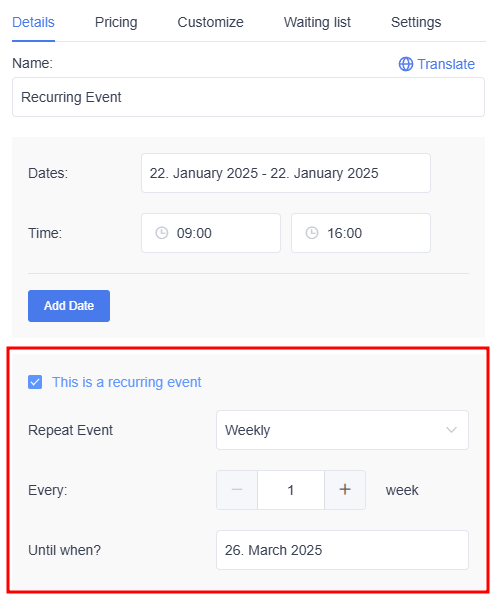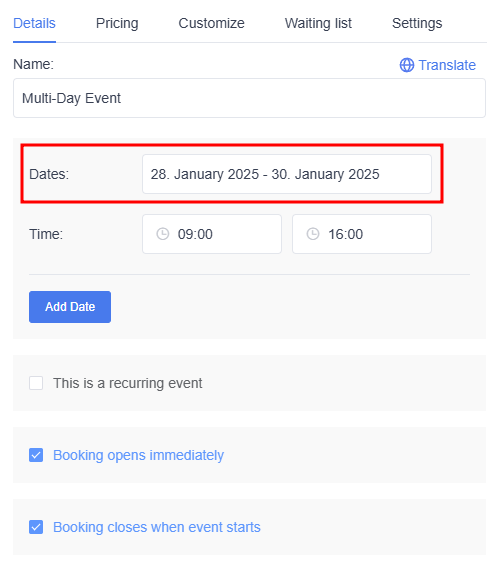
Think of recurring events as lectures. For example, you have an event that occurs every Monday from 10:00 to 14:00. The "Staff" (employee) provides the same lecture every week, so there'd be no reason why a single customer would want to book it for X number of weeks (because it is the same lecture every week).
Because of this, every recurring event is considered a separate event, and when a customer books one event, they are not automatically added to all recurring events.

You can create an event spanning multiple dates (January 28th - January 30th) or simply cover multiple random dates (January 23rd, then February 25th, then March 12th, then April 2nd, and so on). Think of this as a course that either offers different content on every date or continues from the last date. For example, a multi-day event that happens on January 22nd, January 29th, February 6th, February 13th, and February 20th is a 5-class CSS course. On January 22nd, you'd learn basics, on January 29th, you'd move to another stage, on February 6th - to another stage, and finally, on February 20th, you'd complete the course.
A customer would book this event to register for the CSS course, and they would automatically be assigned to all 5 dates within this one event.
Recurring Events and Multi-day Events can be used simultaneously - a range of dates (a multi-day event) can be configured to repeat. For example, a yearly festival is scheduled to happen every year from June 1st - June 4th so you can set it to recur once every year. The rules above still apply:
People who book this event in 2025 will be assigned to all 4 dates as it’s considered a single event (multi-day rule);
Booking the event in 2025 will not automatically add the attendee to all recurring events in 2026, 20207, and so on (recurring rule).